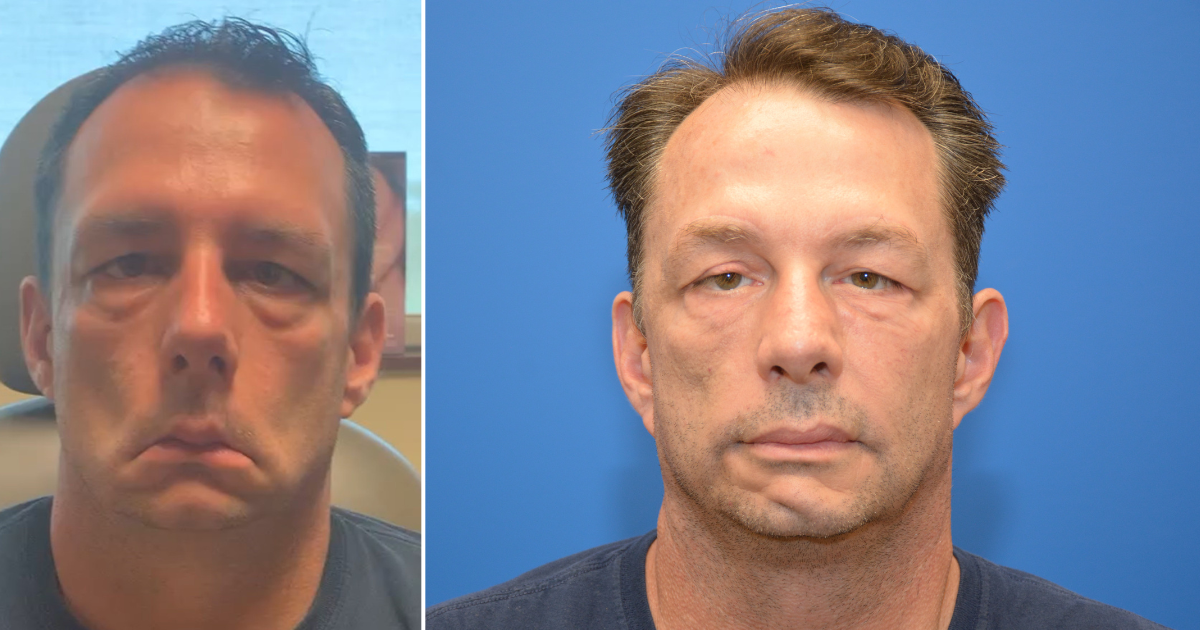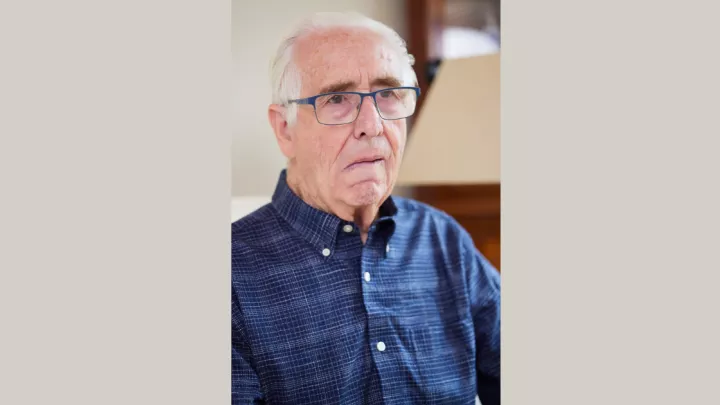One patient's journey with facial paralysis

In 2016, Barry Conner had a stroke caused by a malformed blood vessel in his brain stem that had started to leak. His health care team decided to monitor the situation, knowing the blood vessel would eventually bleed again.
Sure enough, in 2018, the blood vessel bled again, causing another stroke. Conner underwent a posterior craniotomy, in which a part of his skull was temporarily removed to provide access to the ruptured vessel.
However, this procedure damaged the seventh cranial nerve, which controls the facial muscles. As a result, Conner experienced sudden facial paralysis, an outcome of the surgery that he had been warned was likely.
"When I got out of the surgery and was getting settled in, the doctor came in and said, 'OK, let's see what you can do with your face.' And there was nothing," Conner says.
With the nerves in his face essentially dead, Conner's neurosurgeon referred him to Wes Heckman, MD, a facial plastic and reconstructive surgeon. Over the next couple of years, Conner underwent a series of complex reconstructive surgeries.
The journey was not an easy one, but Conner persevered. "After the first surgery, it took about a month, but I started to feel the occasional little tweak. And so, I was trying anything I could to clench my facial muscles or anything I could do. The more you work it, the more it comes around."
Eventually, he began to recover more feeling and movement in his face. His speech also improved, making it easier to communicate. Most importantly, he says, he was finally able to smile again.
Conner says his experience with facial paralysis had a significant impact on his life, especially in how he was perceived by others.
"Your face is completely dead, or even just half your face is dead, and people look at you differently,” he says. “Your speech is affected, and people can’t tell exactly what is wrong. It's hard to deal with, but you deal with it. But now I feel a lot more normal. Confidence is a big thing."

While the surgeries and their recoveries were intense, Conner says the results were worth it.
"I would tell anyone who has facial paralysis to do something about it,” he says. “Dr. Heckman was amazing. His staff was amazing. And it's a long process but be patient. The nerves take a long time [to heal], but it happens.”
Throughout his journey, Conner has been impressed with his Nebraska Medicine care team.
"They make me feel important because I am."
"My experience with Nebraska Medicine has been great from the beginning,” he says. “They make me feel important because I am. The staff is incredible. When I had both the mastoidectomies, they were amazing. It felt like they were only there for me. Every time I come here, I'm happy because I can tell they care for me."







